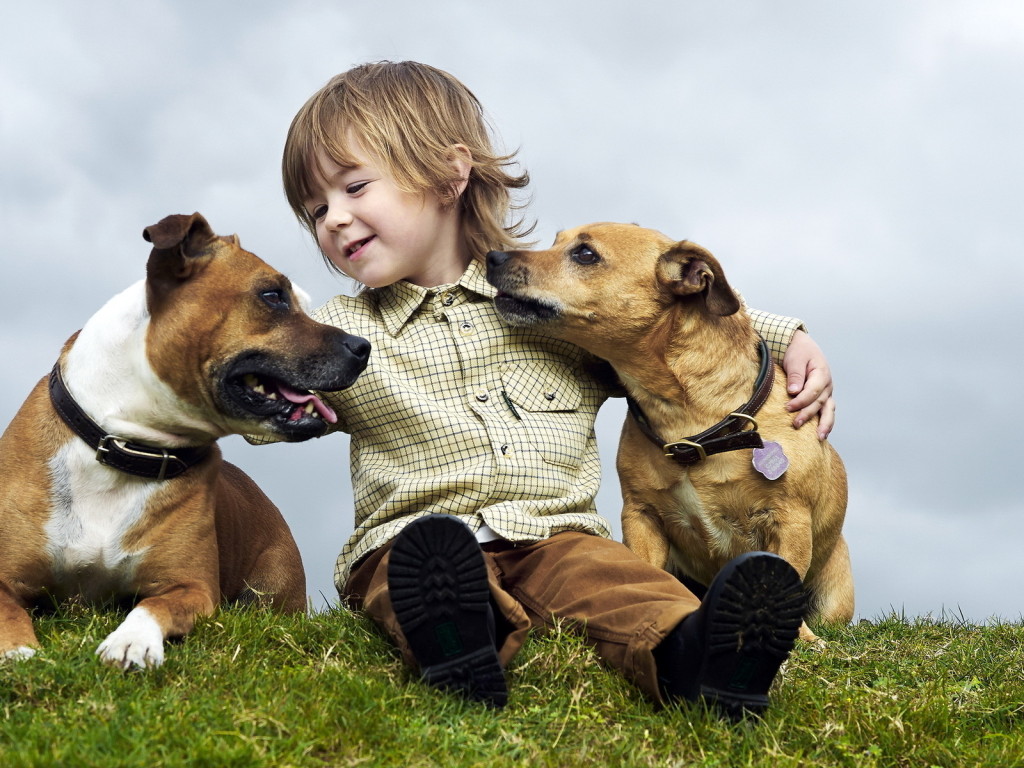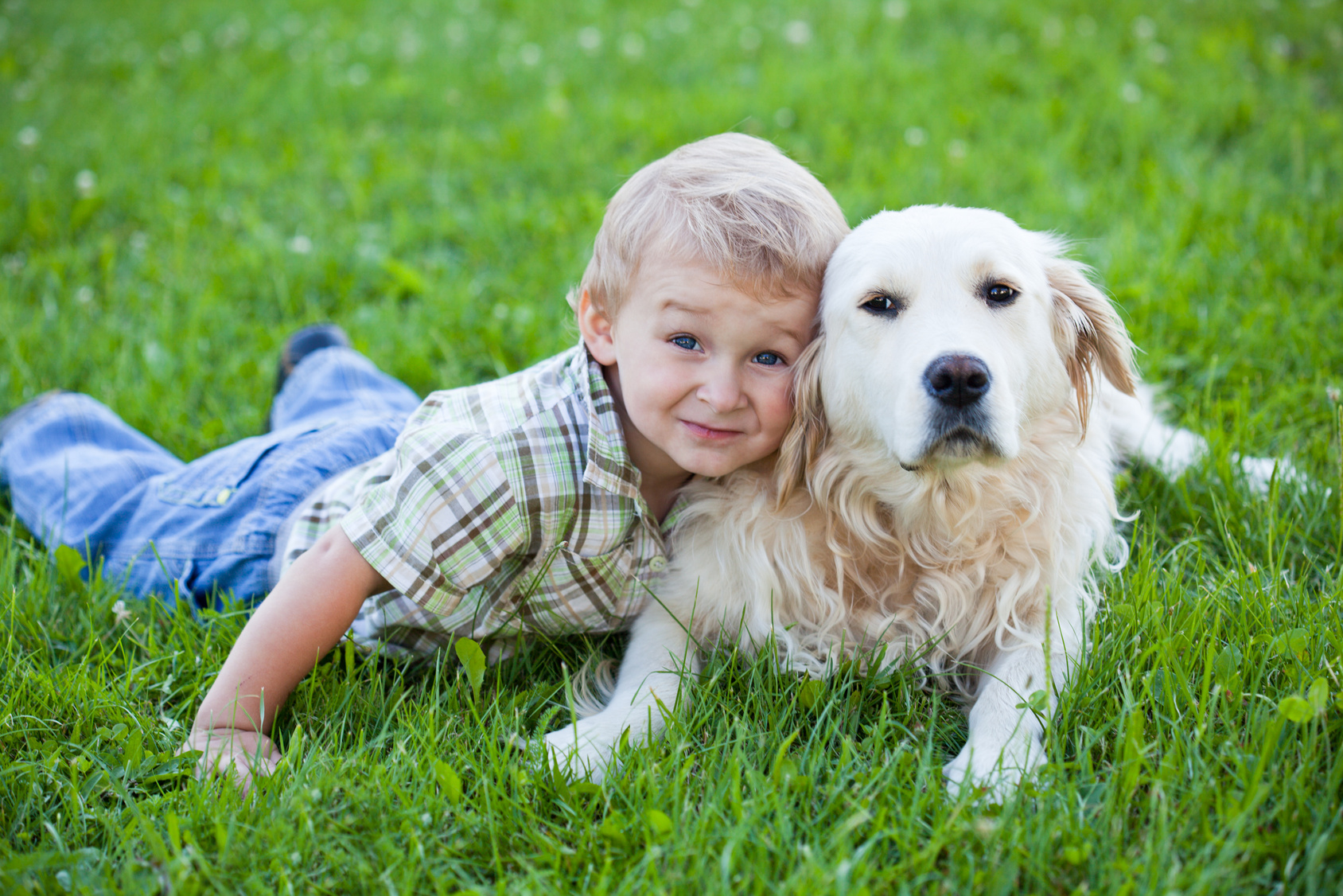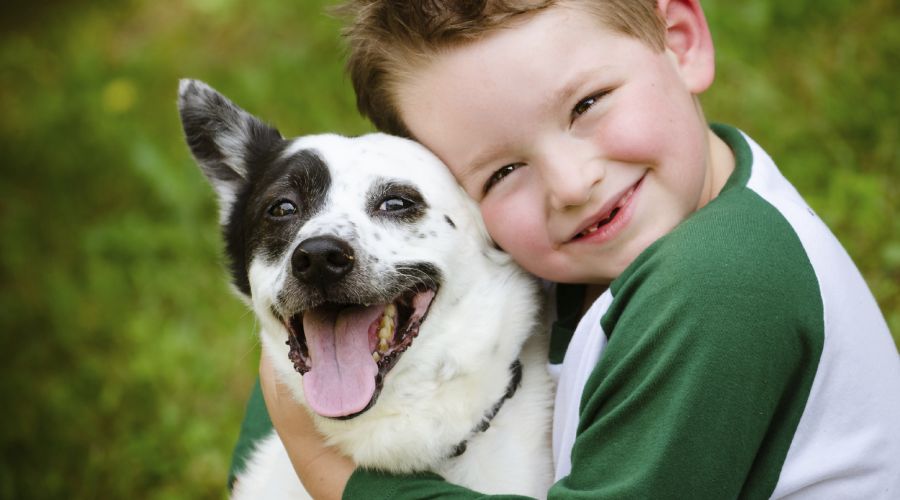A lot of families enjoy the company of pets, but could those dogs and cats be contributing to better health? A recent study done by the Centers for Disease Control and Prevention has found that owning a pet dog may help children achieve better health as they grow into adults. They may even contribute to better mental health and lower anxiety, especially in children or adults who suffer from social issues. For any family that has small children this can mean finally having a reason to say “yes” to adopting a furry friend!

Health Benefits of Dogs
So how does owning a dog help with better health? For children, it starts with weight loss due to increased physical activity. The study explored families in the UK as well as Australia who had young children ages from 5-12. It found that those children had increased physical activity due to walking and actively playing more than children who did not own a dog. They were more likely not only to get up and go for a walk because their dog wanted to go out, but also play outside just because the family pet wanted to. This motivation can greatly reduce the risk of childhood obesity while contributing to a lower BMI (body mass index) as well.

It’s important to note that the family’s socioeconomic may also affect BMI, which is why a dog isn’t guaranteed to help with weight loss or lower BMI. However, they may help contribute to being more active on a daily basis, and that’s especially important for children who would otherwise stay on the couch and watch television.
Pets and Mental Health
While dogs can help kids get up and active, pets in general can be very good for the health of the entire family. They do this in many different ways, starting with providing comfort to those around them. In fact, many dogs act as “therapy dogs” that reduce stress for children who have separation anxiety and mental disorders. Adults also enjoy the comfort of pets when they are going through distress, which can reduce their anxiety and increase their feelings of happiness.

Another way pets can help with mental health is by helping stimulate conversation within groups. They can act as sort of “ice breakers” that allow each person to feel comfortable talking with complete strangers. This is especially important for people who have anxiety and problems with self-esteem, especially in social situations. This is true with dogs, but also with cats that are especially social with people they don’t know (although that isn’t common).
Some kids may also benefit from owning dogs due to the fact that they’ll learn how to have positive interactions, which can help them later in life. If a child is suffering from bullying or isn’t sure how to talk with other people, then simply being able to communicate with their pet can help out considerably. Even for younger children this can be true, which is why owning a pet is so beneficial in most households.
Stress in Animal Families

Families who own pets may also have less stress on a daily basis, especially with children who often have a hard time at school. By using their dogs as someone to talk to, they are able to reduce their anxiety in a healthy and effective way. In fact, when a study was done of children who have dogs in their home, 12% with a dog had anxiety while 21% had anxiety without a dog. This may not be concrete evidence that dogs lower anxiety, but it certainly points to the fact that having a furry friend to talk to can help.
Deciding to Adopt

Anyone who is thinking about adopting a dog should do research ahead of time to ensure they are able to commit for long term, because pets do require a lot of money, time, and care. Fortunately if they do, they may find that their entire family becomes more active and has less stress. They may also notice that the entire family environment picks up simply because everyone has something positive in common to talk about. However, it’s important to note that there is no concrete evidence that a dog or pet in general will reduce BMI while bettering mental health, so there are no results guaranteed.
More from Things Health
-
Wine or Beer: Which is Better for You?
When ordering a drink, do you go for a glass of wine or an ice cold bottle of beer? Whether you enjoy the richness of…
-
Visual Signs of Poor Health That You Probably Ignore (But Shouldn't)
We often think that being diagnosed with an illness such as diabetes, heart disease, stroke or cancer as something that happens out of the blue.…
-
10 Addictions that Could Be Affecting Your Life
You’re out for dinner with a friend, but are you catching up with them, or spending your time on Facebook, Twitter or Instagram? Today it’s…
-
7 Deadly Diseases That Afflict Black Americans
There are 7 deadly diseases that affect more black Americans than white Americans. These diseases hit harder and occur more often in the said demographic.…
-
Things That Don't Actually Need To Be Refrigerated
How much of this stuff even needs to be in here? You might be surprised that a lot of it doesn't. Read on! If you…






